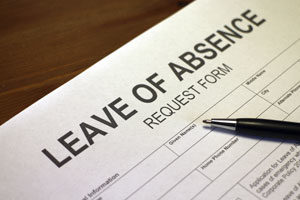On August 8, 2014, Massachusetts Governor Deval Patrick signed into law a far-reaching Act designed to combat the problems of domestic violence. Notably, the Act became effective immediately upon the Governor signing it into law. Though the Act is tailored largely toward law enforcement programs and training, as well as increased penalties for criminal acts of violence, it also includes a provision requiring certain private employers to provide employees who are affected by domestic violence with up to fifteen (15) days of job-protected leave.
The requirements of the new domestic violence leave law are similar to requirements of laws providing job-protected leave for other purposes, such as the Family Medical Leave Act or Small Necessities Leave Act. Important features of the new law include:
- The law applies to employers with 50 or more employees;
- The law affords fifteen (15) days of leave within a twelve (12)-month period to employees who are personally the victim of domestic violence or have a family member who is a victim;
- The leave may be paid or unpaid, at the employer’s discretion;
- Employees may be required to exhaust any available vacation, personal or sick leave before being granted domestic violence leave;
- Employers may require advance notice of the need for leave unless the employee is in imminent danger, in which case he/she may provide notice within three working days after taking leave;
- Employers may require employees taking domestic violence leave to provide documentation of the abuse; however, employers cannot require employees to submit evidence of an arrest, conviction, or other law enforcement document;
- Employers must keep all information in their possession concerning an employee’s request for domestic violence leave strictly confidential; and
- Employers must notify all employees of their right to take domestic violence leave under the Act.
To date, no regulations have been issued, and the Attorney General’s office has not issued any interpretive guidance. Massachusetts employers who may be covered by the Act should consult with counsel immediately to ensure they are in compliance.
